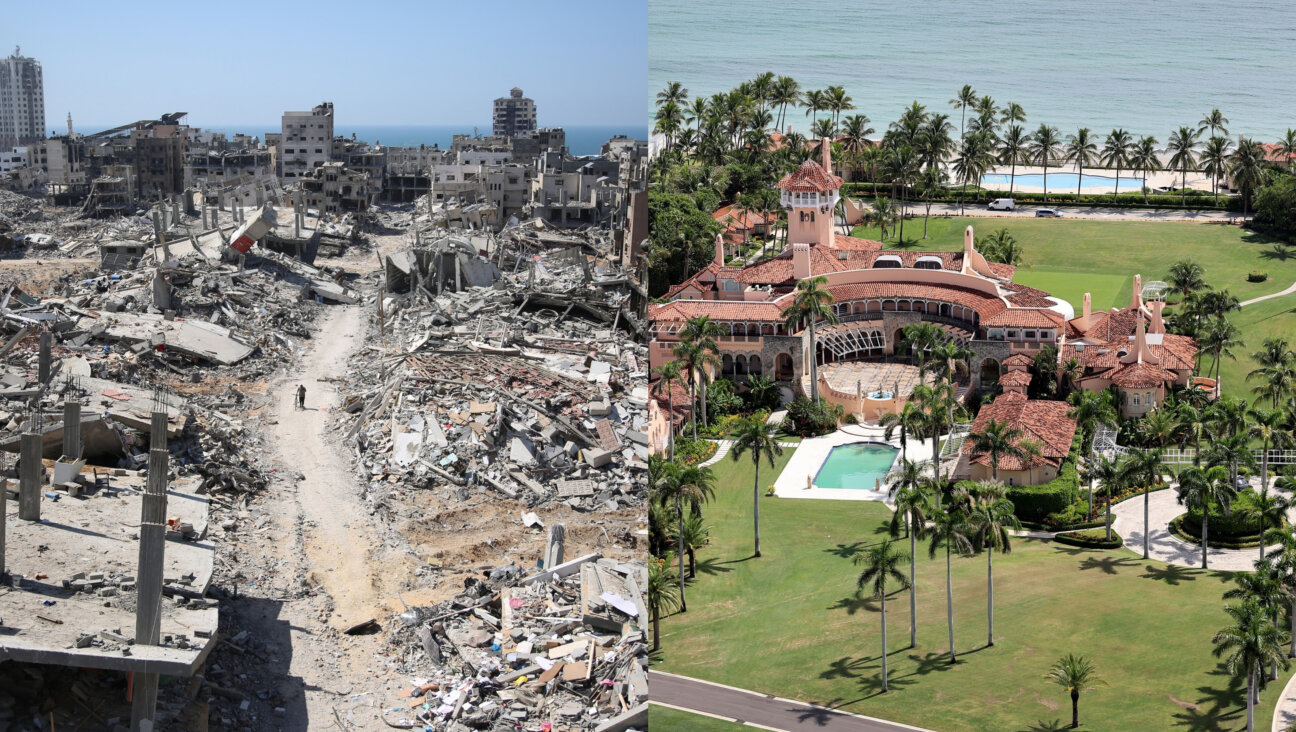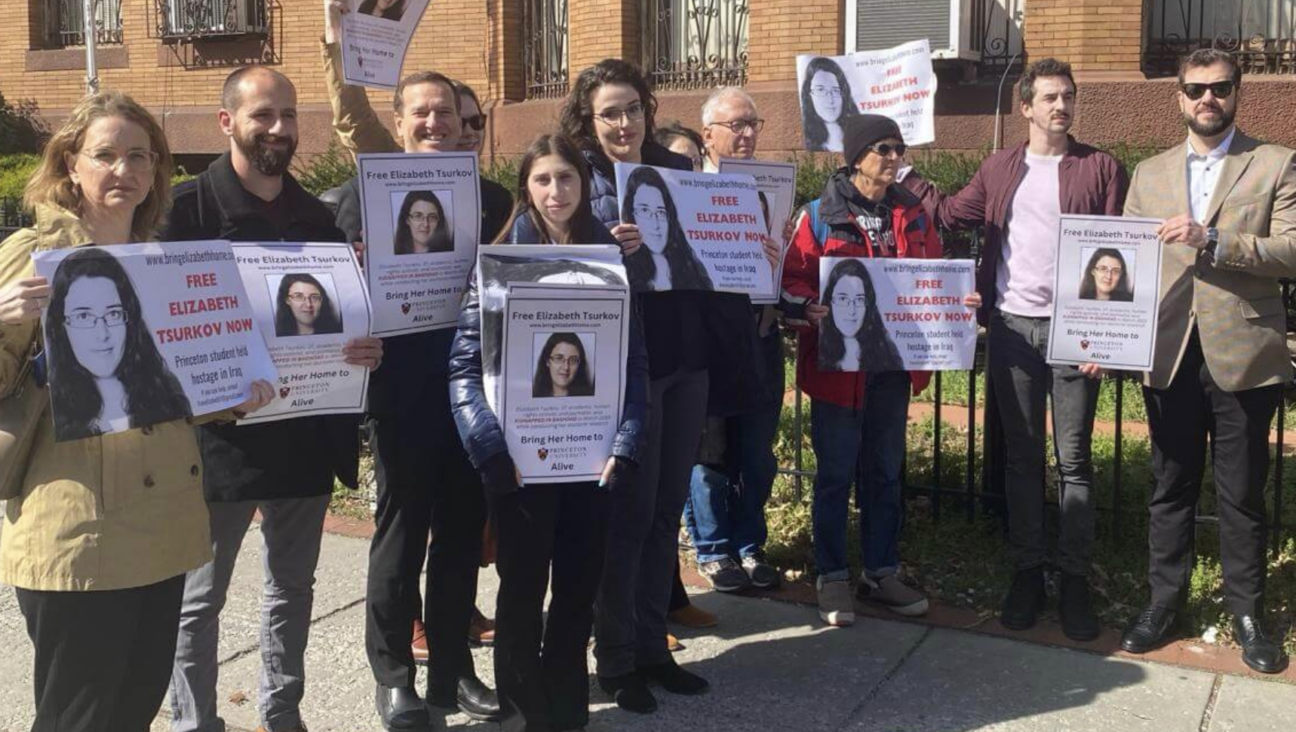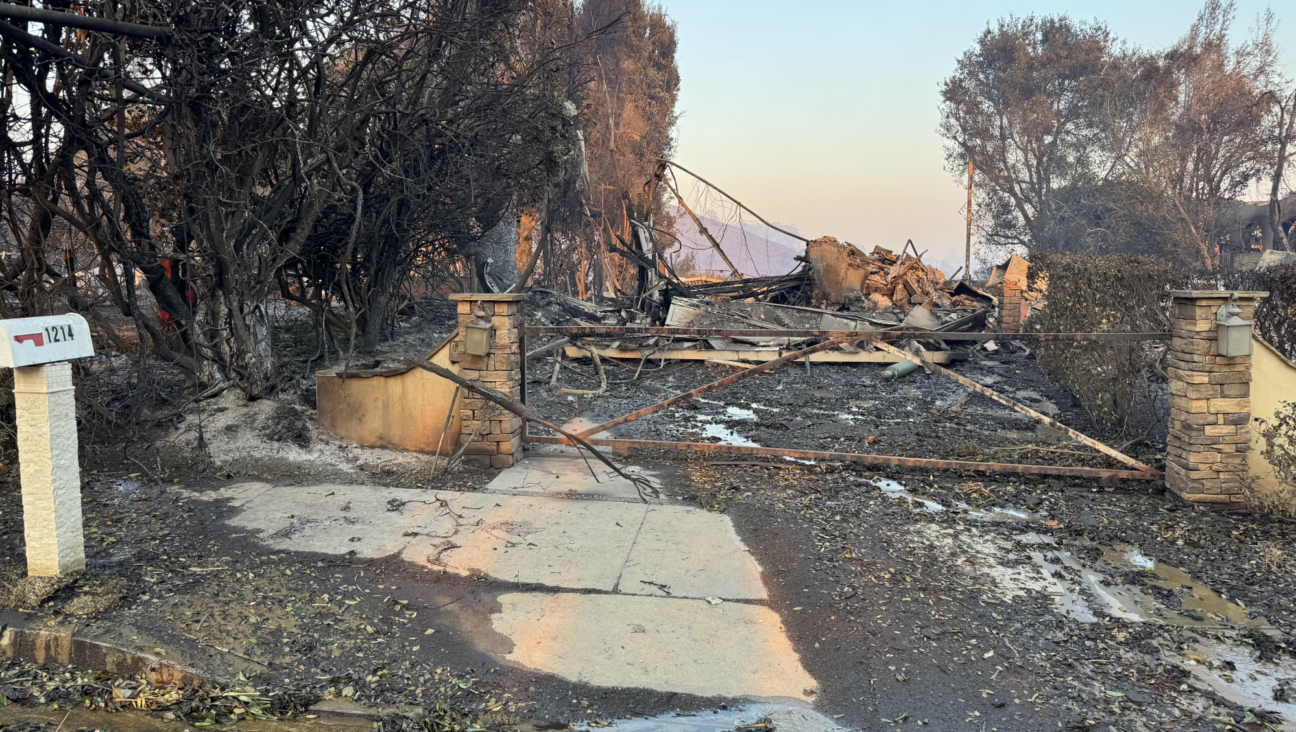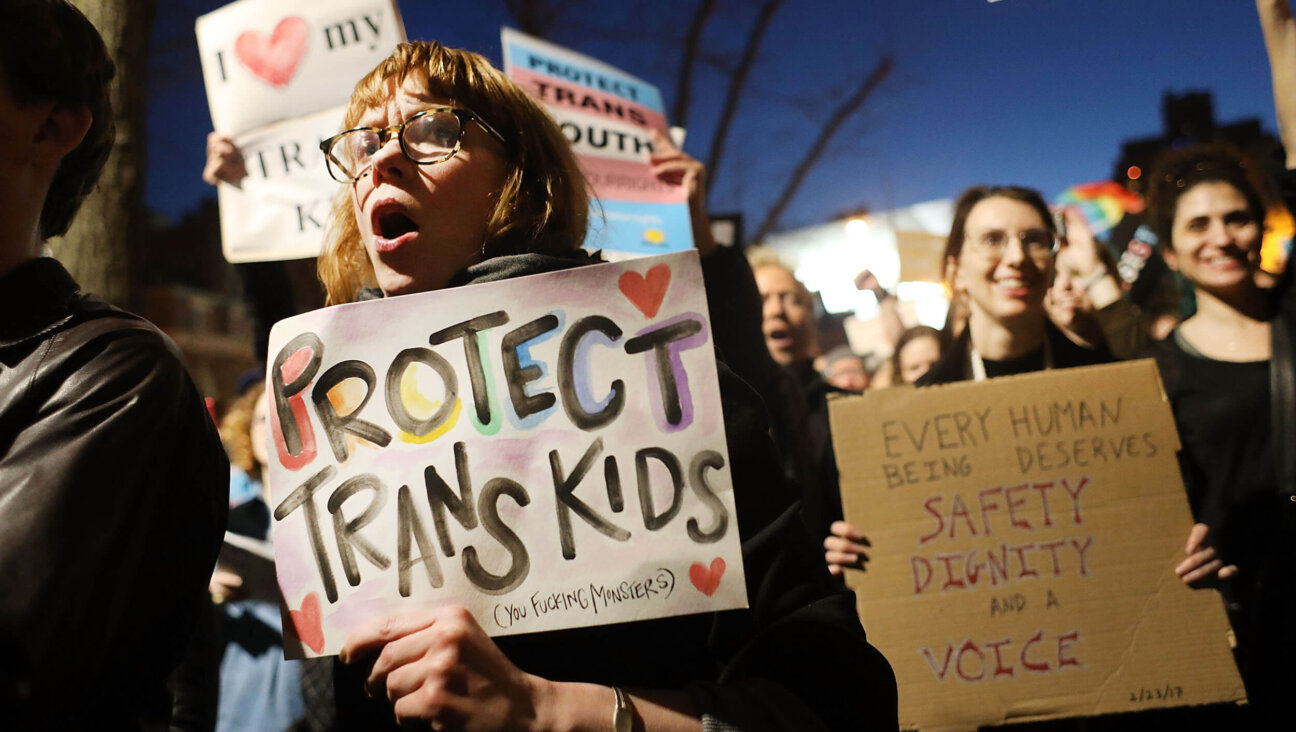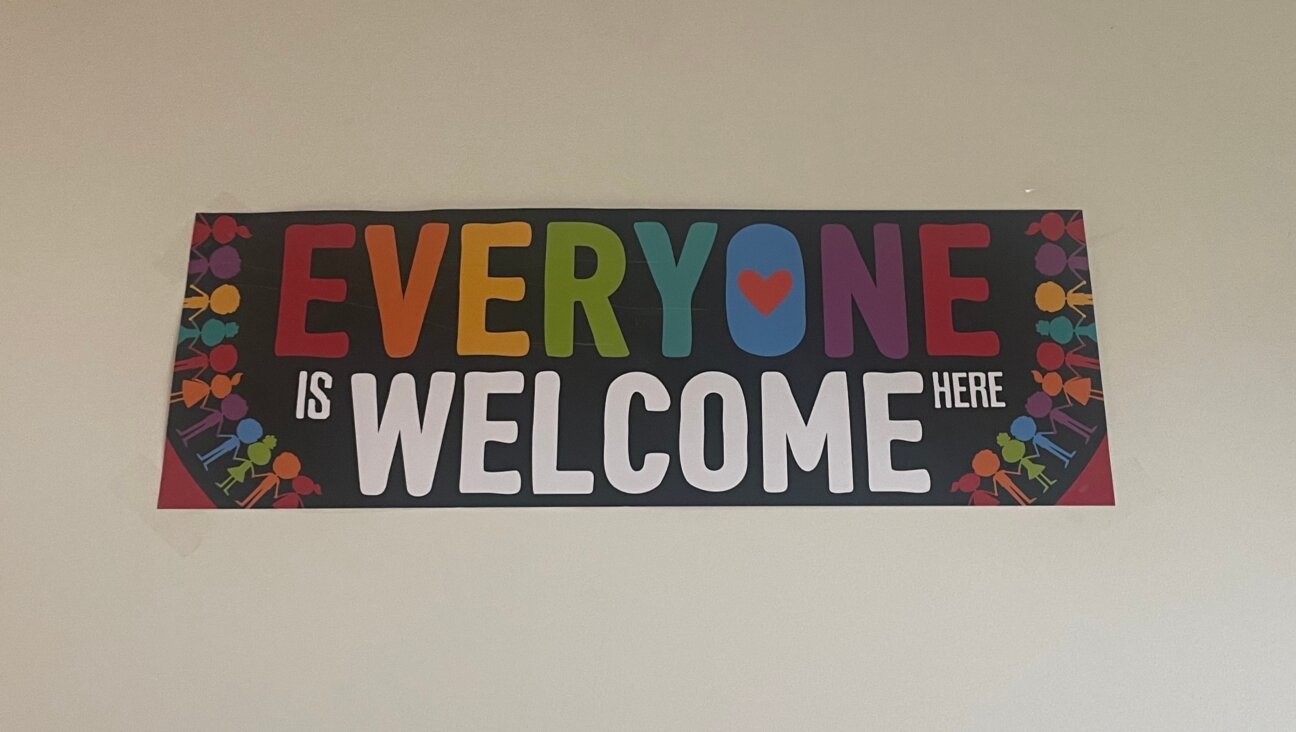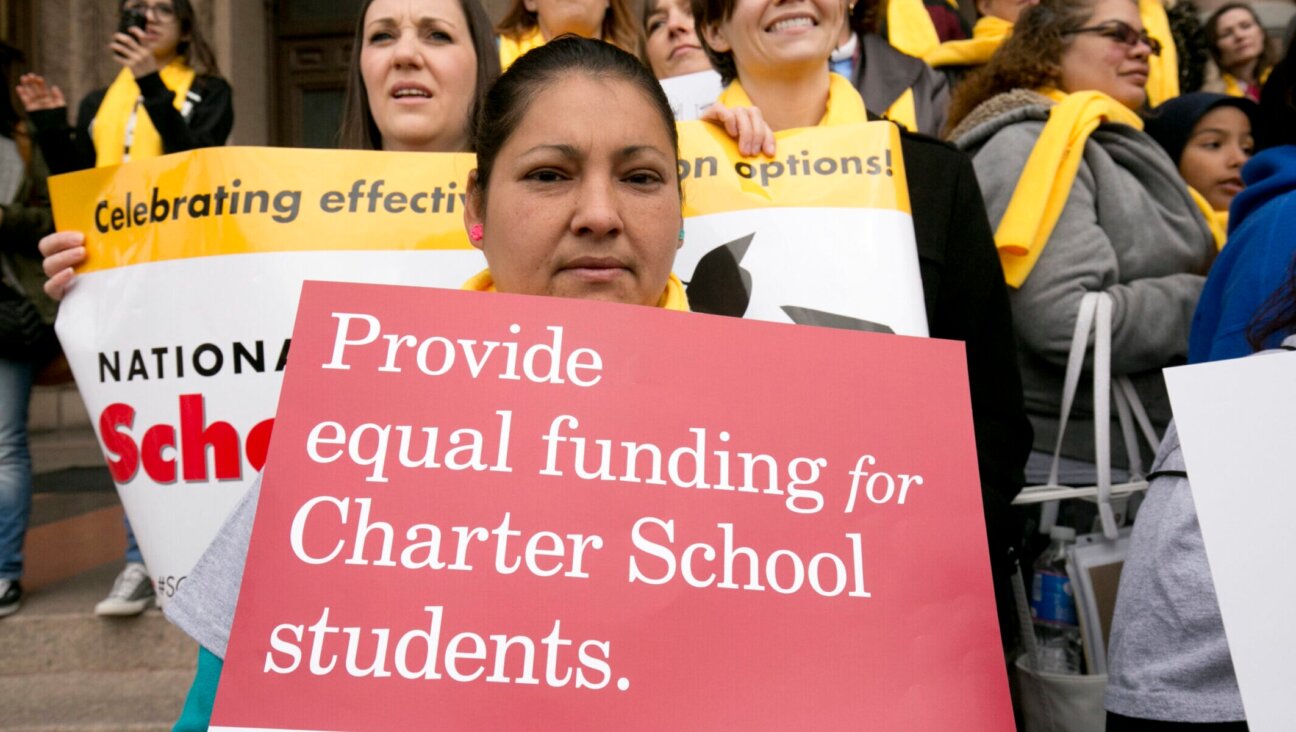What will you do if ICE shows up at your synagogue?
At a congregation that runs a public preschool in a suburb with a lot of immigrants from Central American, it’s not an abstract question
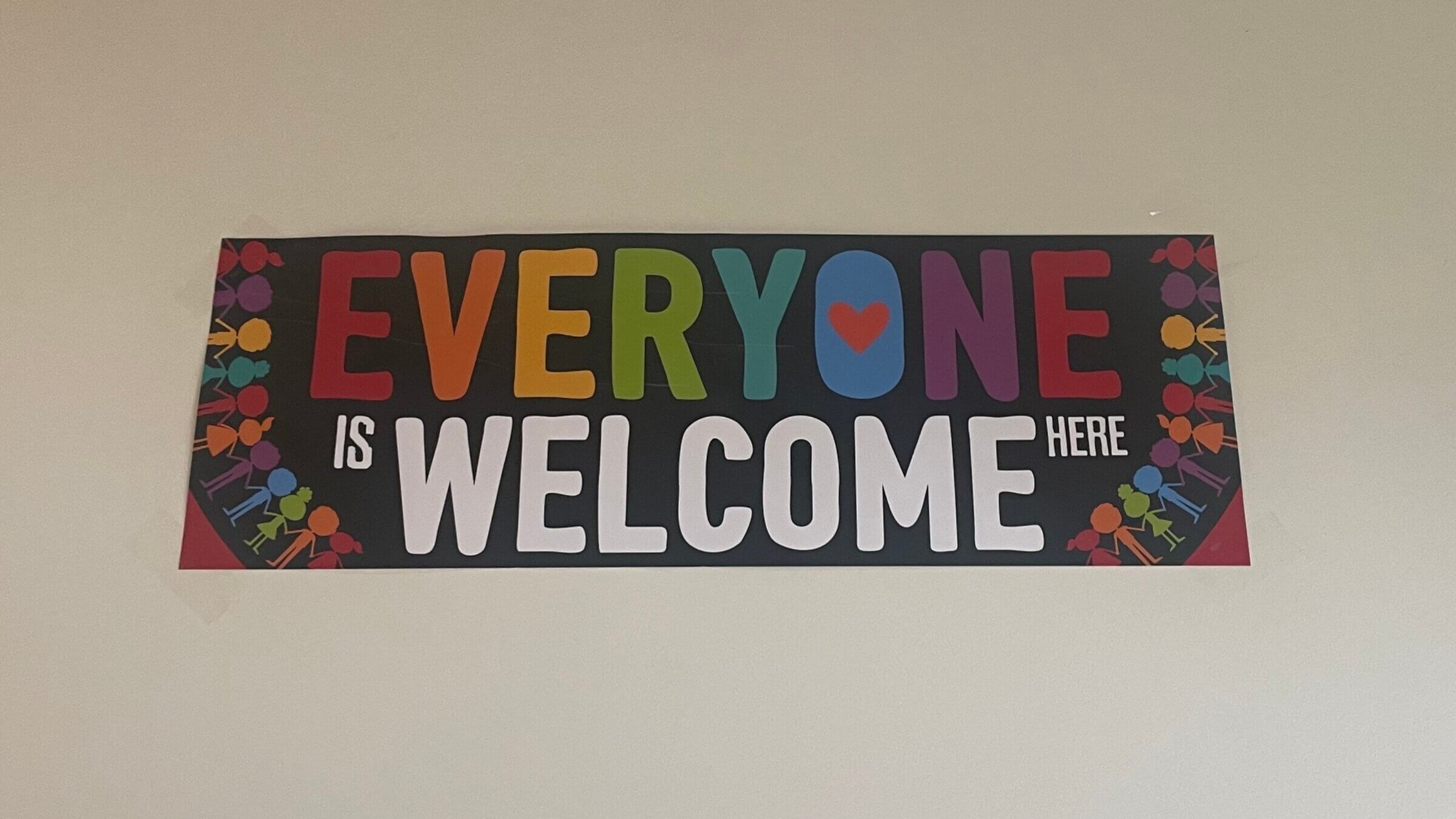
A sign in the hallway of the synagogue, whose leaders spoke on the condition of anonymity for fear of being targeted. Courtesy of the synagogue
This is an adaptation of our editor-in-chief’s weekly newsletter. Sign up to get it delivered to your inbox on Friday afternoons.
The preschoolers tromped into the synagogue one morning this week with their pom-pom hats and their light-up sneakers. They streamed past a giant milk carton showing pictures of Israeli hostages under the words “kidnapped by Hamas,” as the shul’s rabbis emeritus in their tallitot gazed down from their portraits on the wall. At the other end of the hall, two rainbow-colored signs proclaimed “Everyone is Welcome Here” and “Everyone Belongs.”
“Good morning, Grace,” the school director called out. “Good morning Blaze. Good morning Leila.”
One little girl broke out of the single-file line to give the director’s legs a hug. Which is, in a way, exactly why the director is there as the buses unload their precious cargo.
It’s a scene that plays out every day at thousands of synagogue preschools across the country. But at this synagogue, which sits in a suburb with a sizable Central American population and runs a public pre-K program in partnership with the local school district, the leadership has spent the last month grappling with what they’ll do if Immigration and Customs Enforcement agents show up at their door. “It’s not abstract” for them, the rabbi told me during my visit.
Indeed, it’s because of synagogues like this one that the Reform, Reconstructionist and Conservative movements were among 27 religious groups that filed a lawsuit this week challenging the Trump administration’s recision of a policy preventing ICE agents from operating at “sensitive locations” including houses of worship.
“Our mission is to educate, and the kids in the public school are also our kids,” the rabbi said. “I don’t go into a public school class and talk about Purim, but I do give the kids high-fives in the hallway. I am, in a different way, also their rabbi.”
Children that walk the same hallways
The rabbi, school director, executive director and co-presidents of the congregation let me visit and spoke to me about their dilemma on the condition I not identify the synagogue, for fear that could turn it into a target of the Trump administration.
It’s a Reform synagogue with about 400 families, in a town where about a third of the 20,000 residents are Hispanic, including new immigrants from Colombia and Ecuador. This is the fifth school year it has had a contract with the local district to run a free program for 3- and 4-year-olds under their state’s universal pre-K initiative. The public program has five classrooms totalling 75 students, and shares space with the synagogue’s private preschool, which serves 41 kids, about half of whom are Jewish.
What happens inside the classrooms is different — the synagogue disciples do crafts and sing songs related to Jewish holidays, get challah on Fridays; the public ones follow the district’s “creative curriculum,” which, on the day I visited, was moving from a unit about clothing to a unit about buildings.
But they play on the same playground — which the synagogue was able to upgrade with money from the district contract — and walk the same hallways. Past the mural that celebrates “music, prayer, connection, hope, kindness, love, tradition, culture and charity” as the key elements of tikkun olam, repairing the world. The kids mingle in before- and after-care. Some families have siblings in both programs.
When the idea of opening a public pre-K first came up, the only concern was whether it might draw families away from the private program, which costs up to $1,400 a month and provides the synagogue with important revenue. Instead, the private program has added a class for 18-month-olds, and the synagogue has also started a summer camp, which attracts kids from both preschools. Last year, enrolment was double what the budget projected, a boon to the congregation’s coffers.
“Showing to non-Jewish families what a vibrant Jewish community is like is also a bonus,” the rabbi said, citing the upcoming Purim carnival as an example. “The Jewish kids will know what Purim’s about, the other kids will just have a good time with food trucks and games.”
The executive director recalled how, at the town’s fall festival, the shul had a table with activities related to Sukkot, and had “families stop by who are Black, Hindu, Hispanic, saying ‘That’s where I went to preschool.’”
“They want to do the craft, they want to hug,” she said. “They’ve become part of the family. They see us as part of their family.”
Which is why President Donald Trump’s Jan. 20 executive order reversing the longstanding policy regarding so-called “sensitive locations” prompted the synagogue to call an emergency board meeting.
‘It’s because we were allowed to be here’
“I’ve given sermons over the years about the importance of loving the stranger, we were strangers in the land of Egypt, all the good things rabbis talk about,” the rabbi told me. “If I ever hear a congregant talk about being anti-immigration, I remind them that their ancestors also didn’t speak English — whatever we American Jews have accomplished, it’s because we were allowed to be here.”
But this “is not just a Jewish issue because of Jewish values,” he added. “It’s a Jewish issue for us because this is our actual house, our home.”
After the executive order was announced, the preschool director called the school district and the rabbi reached out to the local member of Congress. She talked to other preschool directors, and he to other clergy members. They consulted the synagogue’s security guard. They had the board meeting. And there is still no clear protocol on what, exactly, they are supposed to do if ICE agents show up and ask to remove a student from their class.
“I don’t go into a public school class and talk about Purim, but I do give the kids high-fives in the hallway. I am, in a different way, also their rabbi.”
They know they are supposed to immediately notify the school district. They know they are supposed to ask to see a warrant. They do not know how to assess a warrant’s validity or what to do while they wait for someone from the school district to arrive.
“Am I allowed to check their IDs? I don’t even know that,” the school director said. “Am I allowed to take sometime to verify if this is a judicial warrant? I don’t know that.”
“Our security director said if they come and they’re getting impatient, eventually you have to just kind of step out of the way,” the rabbi added. “He’s an armed guard, and he said it’s not good to have a confrontation between two armed people.”
No clear protocol
To be clear, the synagogue staff has no idea of the immigration status of any of its preschool families; the school district requires only proof of residence in the town, like a utility bill, to enroll. There is no particular reason to suspect these families would draw ICE’s ire. But that’s why the Trump 2.0 promise of mass deportation is so pernicious.
The president frames the immigration crisis as being about murderers and drug dealers illegally infiltrating the country, but his policies threaten to ensnare everyone without proper papers. The synagogue staff is worried, too, about the mental health of its preschool families and staff, about the way the general atmosphere around immigrants have changed.
“We try so hard to say you and her are the same, you’re going to be best friends — we don’t talk about color, we keep it all so neutral for these kids,” the director said. “Their minds are like a sponge. The schools work so hard to say we’re all inclusive, but then outside, what are kids being exposed to?”
She is, herself, the child of immigrants who came from Africa and India more than 50 years ago. Her parents became naturalized citizens and worked for the Postal Service. “In their time it was just a lot more welcoming,” she told me.
On her desk is a sign that says “DIRECTOR OF AWESOMENESS.”
And she has decided what she will do if ICE ever does show up.
“I would just ask if I can go with that child,” she said. “At that moment, I’m the only one that kid would know and trust.
“The board is advising that we don’t get ourselves arrested,” she added. “I don’t care. These kids are my babies. I want to make sure that wherever they end up, they’re with someone they know.”
A message from our Publisher & CEO Rachel Fishman Feddersen

I hope you appreciated this article. Before you go, I’d like to ask you to please support the Forward’s award-winning, nonprofit journalism so that we can be prepared for whatever news 2025 brings.
At a time when other newsrooms are closing or cutting back, the Forward has removed its paywall and invested additional resources to report on the ground from Israel and around the U.S. on the impact of the war, rising antisemitism and polarized discourse.
Readers like you make it all possible. Support our work by becoming a Forward Member and connect with our journalism and your community.
— Rachel Fishman Feddersen, Publisher and CEO








